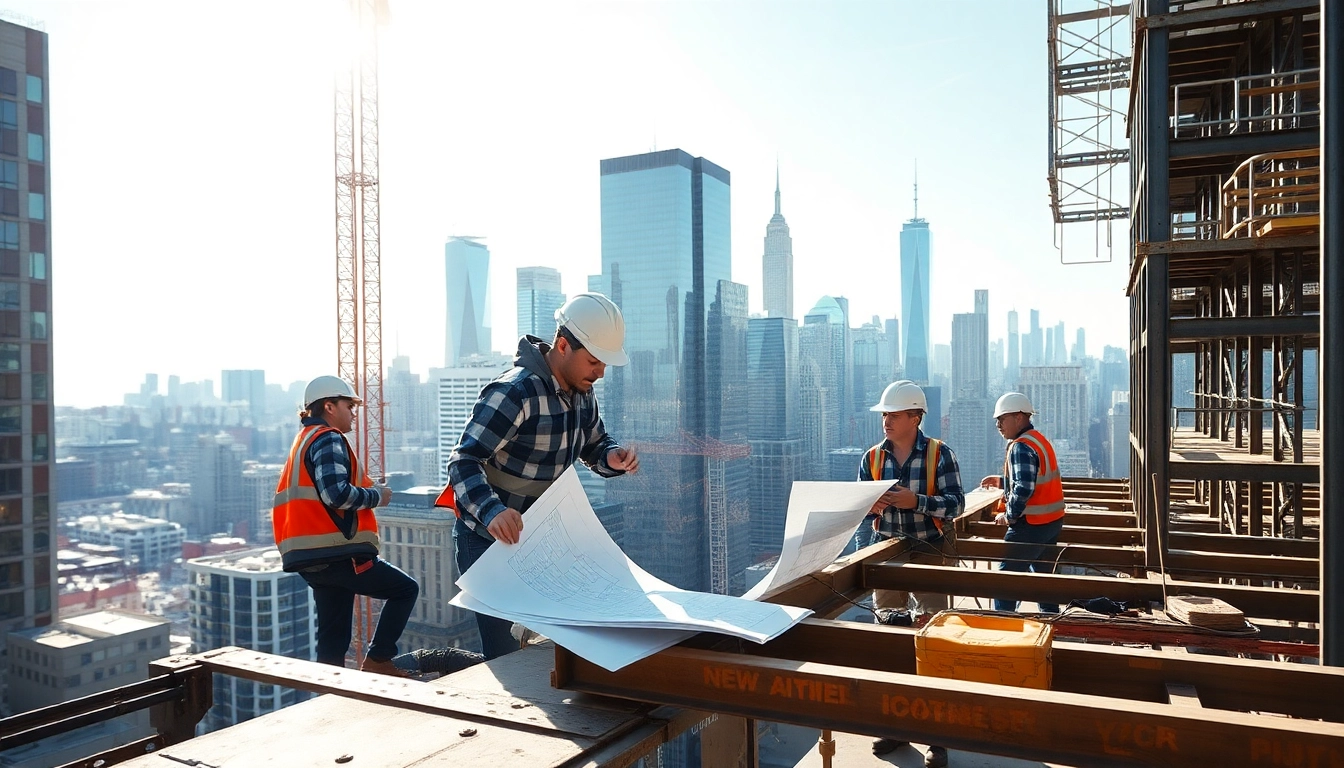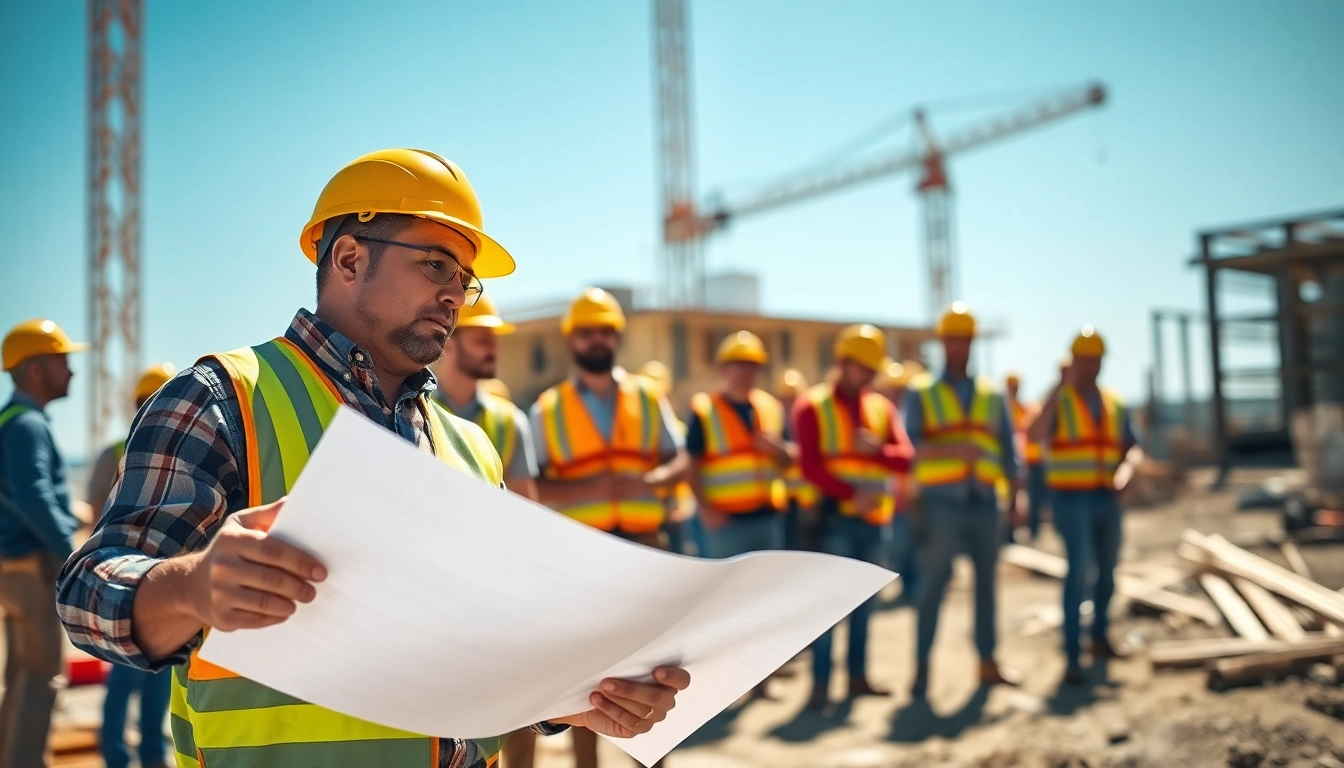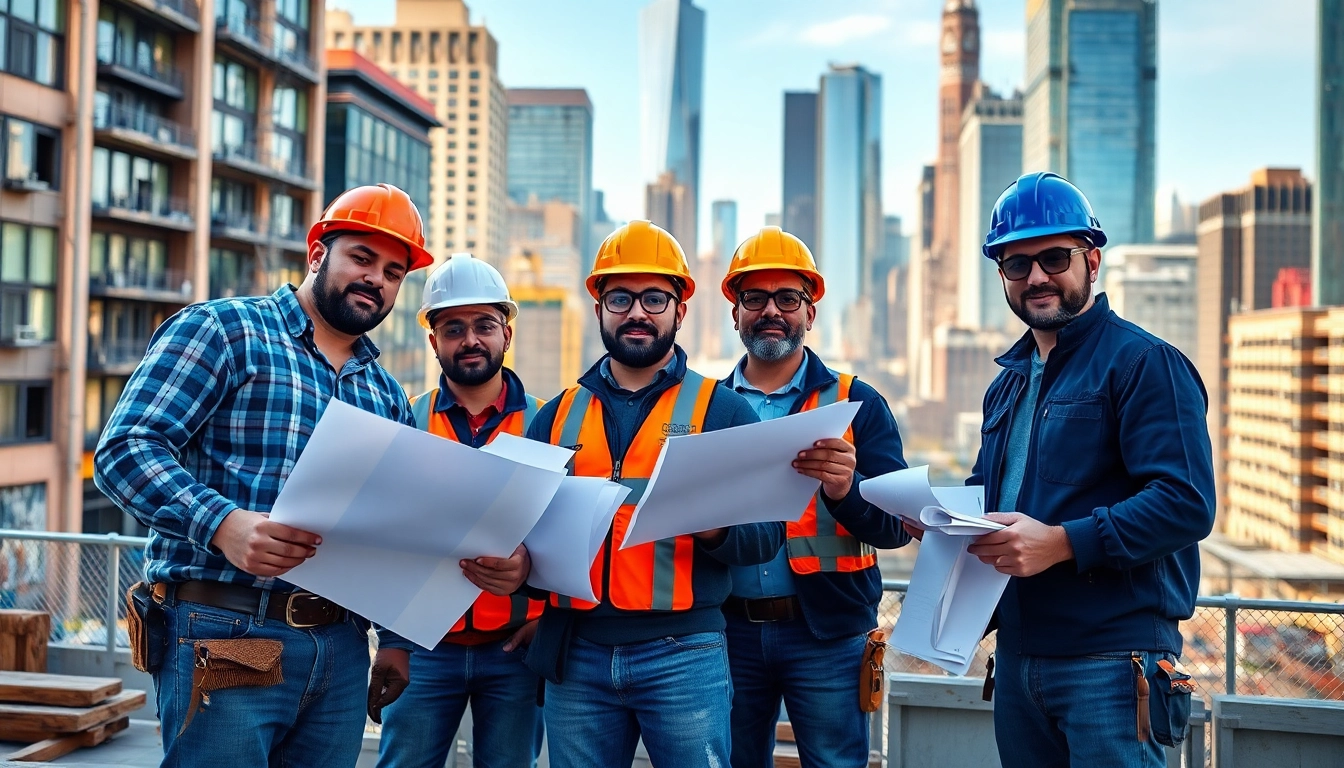
Understanding the Role of a New York City Commercial General Contractor
Definition and Core Responsibilities
A New York City Commercial General Contractor (NYC CGC) is a vital player in the construction landscape of New York City. Their primary role encompasses the overall management of a construction project, acting as the chief coordinator who connects the various stakeholders, including architects, engineers, subcontractors, suppliers, and clients. This role involves not only overseeing construction activities but also ensuring compliance with local regulations and building codes.
Core responsibilities of an NYC CGC typically include:
- Project Planning: Formulating timelines, budgets, and processes for the construction project.
- Procurement: Sourcing materials and hiring subcontractors essential for the project.
- Quality Control: Ensuring that the work meets the required standards and specifications.
- Risk Management: Identifying potential risks to the project and developing strategies to mitigate them.
- Communication: Serving as the main point of contact between all involved parties to relay updates, issues, and changes.
Key Skills and Qualifications
To thrive as a New York City Commercial General Contractor, professionals must possess a blend of technical skills and managerial expertise. Key skills include:
- Project Management: Ability to efficiently manage time, resources, and personnel to ensure project completion.
- Construction Knowledge: Expertise in various construction techniques, materials, and regulations specific to NYC.
- Financial Acumen: Proficiency in budgeting, cost estimation, and financial management to keep projects on track financially.
- Communication: Strong verbal and written communication skills to effectively liaise between stakeholders.
- Problem-Solving: Quick thinking to address challenges and unexpected scenarios that may arise during construction.
In addition to skills, formal qualifications like degrees in construction management or engineering, along with relevant licenses and certifications, are paramount to establishing credibility in the field.
Importance of Experience in NYC
Experience is a critical asset for an NYC CGC, particularly due to the unique challenges posed by urban construction. The dense population, complex regulations, and often unpredictable weather conditions make navigating construction projects in New York City distinctive. Experienced contractors are adept at understanding the local building codes and zoning laws which, if overlooked, can lead to costly delays or legal complications. Furthermore, they have established networks with city officials, subcontractors, and suppliers, allowing for smoother project execution and crisis management.
Factors to Consider When Hiring a New York City Commercial General Contractor
Assessing Project Needs and Scope
Before you embark on the search for an NYC CGC, it’s essential to clearly define your project’s needs and scope. Are you looking to build a new structure, renovate an existing one, or simply manage an extensive maintenance project? Each scenario may require different skill sets and expertise. By establishing your project parameters—such as budget, timelines, and desired outcomes—you provide potential contractors with the information necessary to assess their ability to meet your needs effectively.
Evaluating Contractor Credentials
When considering different NYC CGCs, rigorous evaluation of their credentials is crucial. This includes:
- License verification: Ensure that the contractor holds the appropriate licenses required by NYC.
- Insurance coverage: Confirm that the contractor carries liability and worker’s compensation insurance to protect against risks.
- References and past projects: Request examples of previous work to gauge quality, style, and client satisfaction.
- Financial stability: Assess the contractor’s financial health to ensure they have the resources necessary to manage your project.
Budgeting for Quality Work
Budgeting is perhaps one of the most significant aspects of hiring an NYC CGC. While it may be tempting to go for the lowest bid, it is crucial to distinguish between cost and value. Considerations should include the contractor’s track record, the quality of materials they use, and their commitment to deadlines. High-quality work may come at a higher initial cost, but can lead to long-term savings through durability and lower maintenance needs.
Best Practices for Working with a New York City Commercial General Contractor
Establishing Clear Communication
Effective communication sets the foundation for a successful project. At the outset, establish preferred communication methods and frequencies—whether through regular meetings, emails, or updates via project management software. Additionally, address any communication barriers that might arise due to language or technical jargon. Ensure that everyone involved in the project understands their roles and responsibilities, which can significantly reduce miscommunications and errors.
Setting Realistic Timelines
Creating a project timeline that is ambitious yet achievable is essential for maintaining momentum while preventing burnout. Work closely with your NYC CGC to develop project milestones, and be transparent about deadlines. Contingency plans should also be in place to handle unexpected delays, whether from weather, supply chain issues, or unexpected site conditions.
Monitoring Progress and Adjustments
Regularly monitoring progress throughout the project can help identify any deviations from the plan early on. Establish a feedback loop with your NYC CGC, where progress can be reviewed, and adjustments made as necessary. Utilizing project management tools and techniques can also facilitate the tracking of tasks and timeline adherence.
Common Challenges Faced by New York City Commercial General Contractors
Regulatory and Code Compliance Issues
New York City has a complex regulatory environment governing construction. Compliance with local building codes, zoning regulations, and safety standards can be challenging. An experienced NYC CGC will navigate these complexities, ensuring that all necessary permits are obtained, inspections are passed, and the project adheres to regulations, thus minimizing the risk of legal issues. Always verify that your contractor has the experience required to manage compliance comfortably.
Managing Project Costs and Delays
Cost overruns and project delays are common challenges in the construction industry. Unforeseen circumstances such as material shortages, labor strikes, or inclement weather can cause significant disruptions. To mitigate these risks, establish a clear budget with contingency funds for unexpected expenses. Your NYC CGC should provide you with regular financial updates so you’re aware of spending patterns and forecasted costs.
Navigating Urban Construction Constraints
Building in a densely populated urban area like New York City presents unique challenges such as limited workspace, logistical issues, and interactions with the public. Strategies for overcoming these challenges involve careful planning, including obtaining necessary street closures or permits and managing relationships with neighbors. A seasoned NYC CGC will have experience dealing with such constraints and can provide insights and strategies to navigate these challenges effectively.
Measuring Success with Your New York City Commercial General Contractor
Key Performance Indicators to Track
Measuring the success of the partnership with your NYC CGC can be complex. Developing key performance indicators (KPIs) will help ascertain whether the project is on track. Key indicators may include:
- Adherence to budget: Tracking actual costs against the budgeted costs.
- Timeline efficiency: Measuring whether milestones are being met as agreed.
- Quality of work: Assessing the finish and durability of the construction.
- Client satisfaction: Gathering feedback from project stakeholders on their experience and satisfaction levels.
Feedback and Continuous Improvement
Post-project feedback is invaluable for both contractors and clients. Engage in open discussions about what worked well and what challenges were faced during the project. Constructive feedback will allow for continuous improvement in future projects and strengthen the relationship between the contractor and the client, fostering an environment of trust and collaboration.
Long-Term Relationships and Future Projects
A successful partnership with a New York City Commercial General Contractor can pave the way for future collaborations. Building long-term relationships allows for better communication and understanding, which can streamline subsequent projects. Experienced contractors appreciate clients who value their expertise and are more likely to prioritize their needs in future endeavors.





